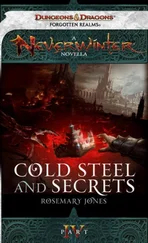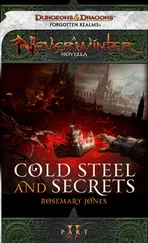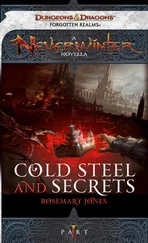Bashir was not naïve, and he and his fellow students had been warned from day one at the madrasa to be alert to the presence of intelligence agents from the West. More than once it crossed his mind that the man was not what he said he was. But in their conversations the Englishman was never probing or intrusive; indeed, he seemed more inclined to explain to Bashir his own views.
These seemed oddly un-Western, for he was very knowledgeable about Islam, especially in the Middle East he seemed to know so well. He was also vehemently anti-American, dismissing 9/11 blithely as a case of “chickens coming home to roost.”
The Imam had been encouraging Bashir to attend a training camp, to equip him to join his Muslim brethren fighting in Afghanistan or even Iraq. But he had been resistant. Why? He was not sure himself, until at one of their meetings the Englishman had put a new idea in his head. If he were Bashir’s age, the Englishman mused, he would want to take up arms against the West. Though not in Afghanistan or Iraq, he added thoughtfully. Why die anonymously in an alien land, when one could instead carry the battle more effectively to one’s own homeland? Fighting the Western forces out here, he’d said, was a mug’s game. So what if the U.S. and UK armies lost a few soldiers? They had still managed to shift the battle to distant territory which few of their citizens knew anything about. What those powers really dreaded was warfare conducted on their own turf.
The Englishman said all this in a series of random remarks, but for Bashir they crystallised his own thinking—and his own reluctance to volunteer to fight alongside Al Qaeda recruits. Why not go ahead and be trained, he thought, but take the battle home?
But what could he do on his own? At their next meeting, somewhat rashly he said as much to the Englishman. And that was when their fateful bargain had been reached. For the Englishman had offered to help.
It was an offer Bashir was initially suspicious of. He assumed the Englishman was leading him into a trap, setting him up to be captured and imprisoned. Perhaps he made that clear, for the Englishman now made his own confession. He said he understood if Bashir didn’t trust him, and Bashir had good reason not to, since the import-export business was not the full extent of his professional activities. Yes, he had ties with intelligence services—better not to be too specific, he declared. But he had agendas of his own, which happened to coincide with Bashir’s desire to strike against the West.
Knowing this, could Bashir trust him? asked the Englishman rhetorically. Well, why not? If he had wanted to entrap him, would he really be encouraging him to act on his own? Wouldn’t he be trying to get him to join existing cells so the authorities could monitor and then prevent the activities of a wider circle?
The rest was… history in the making, thought Bashir now. He had met Rashid and Khaled at a mosque in Wolverhampton and found them eager to wage jihad but just as eager to be led. They were young, and easily swayed. The Englishman had agreed to their enlistment because of these characteristics and also, he had explained to Bashir, because they were both virgins in security terms.
A mistake, perhaps, since Rashid had proved nervy and prone to ill-judgement, but at least he was isolatable—though his Dutch connections were a source of worry rather than the badge of experience they had seemed. Still, on this day Rashid would have little enough to do—just a phone call. So it should be possible to ensure he kept his nerve.
It was eleven-thirty.
Unlike Bashir, Tom had no need of a vehicle in Oxford, and left his rental car with his bag in the boot at the Park and Ride on the northern edge of town. The first step was almost over.
Now he took the commuter bus like any weekday shopper and got off opposite the Radcliffe Infirmary, once the town’s hospital. It was an extraordinarily beautiful day now, the sun out in full force, a breeze keeping it from becoming too warm. Tourist buses were parked on St. Giles as he walked towards the middle of town. Had they been such a feature when he’d been a student? Probably, but he wouldn’t have noticed them then.
And otherwise, it all seemed astonishingly unchanged. But then, why would anything change? It would only do so at outside instigation, since those already powerful enough to force change simply would not do it. Why not? Because they were already on the same side. Oxford, Cambridge, the Foreign Office and the intelligence services, dark heart of the Establishment that had ruined his father. He had infiltrated them in order to hurt them back. At last he was going to begin to do just that. The smugness will soon be gone, he told himself.
Turning into the Broad he walked along to Blackwell’s bookshop. There he went to the coffee shop on the first floor, ordered a double espresso, and took it over to a seat by the window. A ringside seat, he thought, looking across the street at the Sheldonian, curved on this side, its yellowed stone topped by the bright white paint of its wooden cupola.
There were no cars parked in the middle of the Broad; it had been cordoned off. He wondered about this, but only momentarily, for it made sense—the cars would mar the beauty of the procession as it moved along the far pavement from the Turl.
He skimmed the copy of the Guardian he’d picked up, but kept a regular eye on the street. Students and the occasional don came down the steps of the Clarendon Building opposite, fresh from the Bodleian behind it, carrying briefcases and rucksacks and armfuls of their own books. On the street a final tour bus had been allowed to stop temporarily in front of the Museum of the History of Science, with an open upper deck that was gradually filling up with tourists carrying cameras. At the corner of the Turl, he saw a uniformed policeman, giving directions to an Oriental woman. The policeman looked entirely unruffled. Good, thought Tom.
It was exactly noon. He finished his coffee and stood up, then went slowly to the back of the floor, where he glanced at the Literature section, before going downstairs. Had he stayed by the window two minutes longer, he would have seen the policeman joined by four colleagues, two of whom wore bulletproof vests and were carrying Heckler Koch carbines.
On the ground floor, he stayed away from the front desk, which was manned by two members of staff, and browsed through children’s books at the back of the shop, where a mother was trying to keep one eye on her wandering toddler while she bought a copy of The Wizard of Oz.
He checked his watch and at exactly five minutes past twelve walked across the floor to the inconspicuous recess of the shop’s one lift. He pressed the button, and waited patiently; he had allowed sixty extra seconds in case there was a hitch. If need be, he could go outside.
The lift door slowly opened, and a woman with a walking stick emerged. He smiled pleasantly, then moved in and quickly selected the top floor before anyone could join him in the lift. As it ascended he keyed the preset number on his mobile; the signal was strong. On the third floor he put his finger firmly on the Doors Close button—he didn’t want any interruptions.
Then he spoke: “Listen carefully. I will not repeat this message…”
It was time to move. Bashir started the van and drove up to Walton Street where he passed the imposing façade of Oxford University Press. At the traffic lights he went left and drove carefully for 200 yards, then indicated and pulled over left onto a double-yellow line in front of the Ashmolean Museum. Rashid prepared to climb out. “There’s a traffic warden across the street,” Bashir lied, to avoid long farewells. He reached across Khaled in the middle and extended his hand.
Читать дальше












